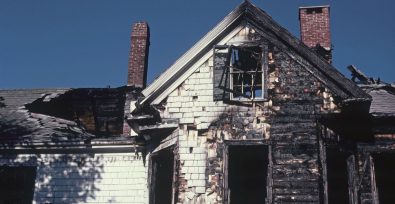On July 2, a devastating fire destroyed SafeHope Home—the only long-term, survivor-led residential program in Canada designed specifically to support survivors of trafficking. All three survivors and one staff member inside at the time escaped unharmed. But the fire destroyed the home and the few belongings the survivors managed to hold onto after fleeing their traffickers.
SafeHope Home provides a safe and stable environment where survivors can live long-term and access comprehensive support. Staff offer trauma counseling, addiction recovery services, educational assistance, and culturally sensitive support. They are trained to understand the complex and often misunderstood trauma that trafficking survivors endure. This includes psychological manipulation, gang violence, and coercive relationships.
Authorities did not deem the fire suspicious, but the loss has sharply highlighted Canada’s severe shortage of such resources. And the urgent need to create more.
A system under strain
“There is nothing else like SafeHope Home,” says Executive Director Jasmine De Fina to The Pointer. “There are maybe six specialized residential programs for trafficking survivors in all of Canada.”
The fire has underscored the shocking scarcity of safe housing for survivors. Many victims must choose between returning to their trafficker—who may provide food, shelter, and drugs if addiction is a factor—or facing homelessness. Both the Canadian Centre to End Human Trafficking and the Department of Justice Canada confirm that survivors most frequently request secure housing, yet struggle to access it.
De Fina notes that SafeHope Home is the only program in the country supporting women over age 26 and offering care for up to seven years. “We’re always at capacity, always have a waitlist,” she says. Despite repeated calls for investment in specialized programs—not just emergency shelters but long-term, trauma-informed housing—governments have yet to deliver the scale of support needed.
The Government of Canada’s previous national strategy to combat human trafficking expired in 2024. A new version has yet to be released, leaving service providers like SafeHope Home operating in a funding vacuum.
Community rallies—but the need of trafficking survivors is greater
In the aftermath of the fire, the community rallied. Survivors were temporarily housed in a retreat and then a donated cottage. De Fina was able to secure a temporary space and furnish it with donated funds, and it may now serve as a residence for survivors in recovery.
Donations from organizations like York Regional Police, the Ontario Native Women’s Association, and Greenshield have poured in, and the Ministry of Community Safety and Social Services committed to a modest $35,000 per year increase in funding—far below the $1.5 million SafeHope Home had requested.
SafeHope still needs $150,000 to secure and renovate a new permanent location. For De Fina, the fire is a reminder of how fragile and rare this support system is. “This tragedy made it clearer than ever: without places like SafeHope Home, there is nowhere for these women to go.”







Freedom United is interested in hearing from our community and welcomes relevant, informed comments, advice, and insights that advance the conversation around our campaigns and advocacy. We value inclusivity and respect within our community. To be approved, your comments should be civil.
Providing a safe harbor is the least we can do as a society. Let’s do the right thing.